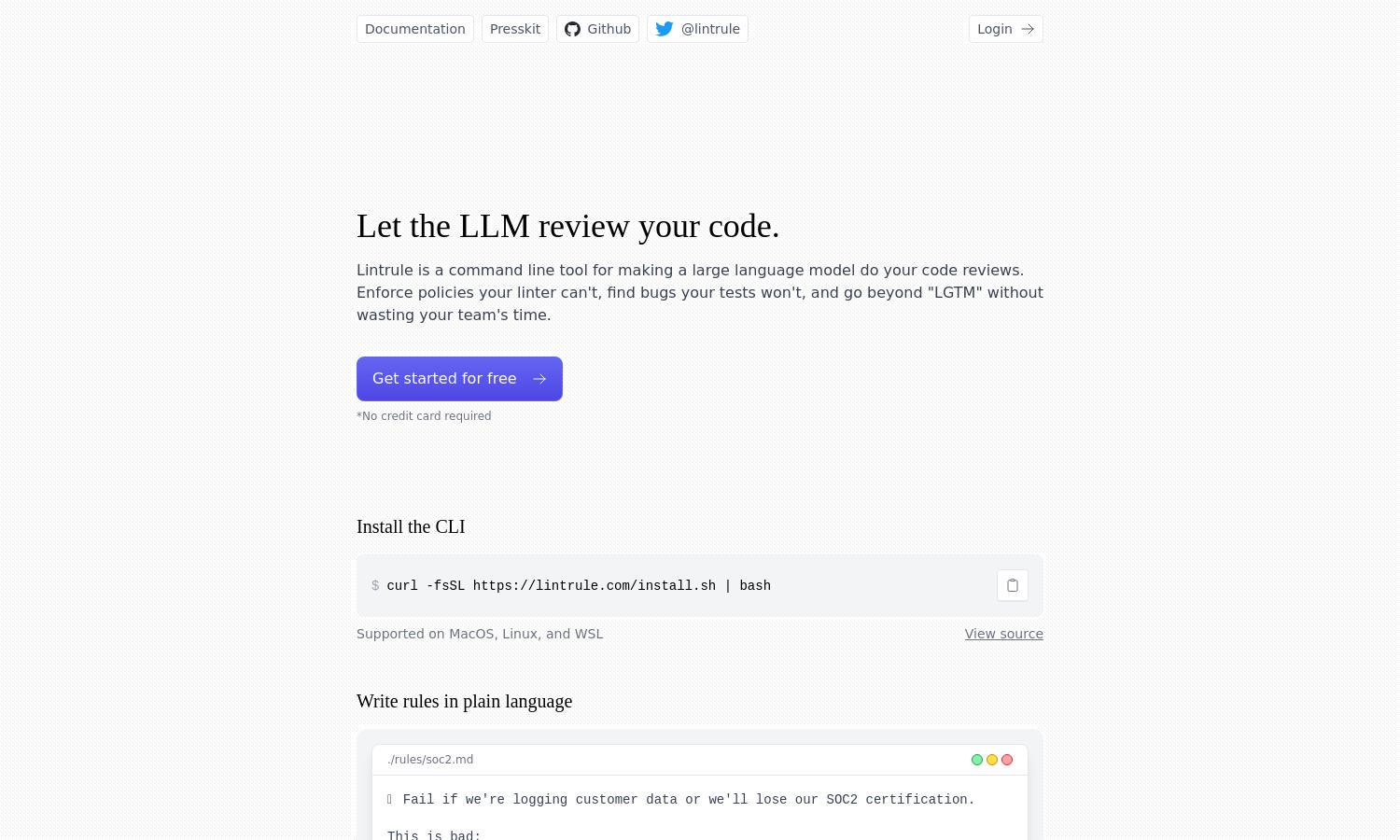Lintrule

About Lintrule
Lintrule is an innovative tool designed for developers, enabling them to automate code reviews using AI. By utilizing Lintrule, teams can enforce coding standards, discover hidden bugs, and improve collaboration without manual intervention, ultimately streamlining the development process and enhancing software quality.
Pricing for Lintrule is flexible, starting at $1.00 per 1,000 lines of code changed. Small projects may incur around $20 monthly, while larger repositories can expect costs up to $250 monthly. Upgrade options allow for extensive features and rule sets, making Lintrule accessible for various project scales.
Lintrule features a user-friendly interface that prioritizes seamless navigation and efficiency. With an intuitive layout, users can easily initiate code reviews, manage rules, and monitor progress, ensuring an exceptional user experience that keeps teams focused on developing high-quality code.
How Lintrule works
To start using Lintrule, first install the command line tool and initiate a rules folder within your codebase. After logging in, a default 'no-bugs' rule is created. Users simply run the command 'rules check' to verify code against set parameters, ensuring compliance with policies and rapid identification of issues.
Key Features for Lintrule
AI-Powered Code Reviews
Lintrule's AI-powered code reviews represent its core functionality, allowing developers to automate the process of identifying bugs and enforcing coding standards. This unique feature saves time and enhances code quality, making Lintrule an essential tool for modern software development.
Custom Rule Creation
Lintrule allows users to create custom rules tailored to their specific coding standards and requirements. This feature enhances the platform's versatility and ensures that teams can enforce unique policies effectively, making Lintrule a valuable asset for any development project.
Parallel Rule Checking
Lintrule's ability to check rules in parallel speeds up the code review process significantly. By enabling simultaneous evaluations of multiple rules, users benefit from reduced review times, allowing for faster iterations and improved overall productivity in software development.








